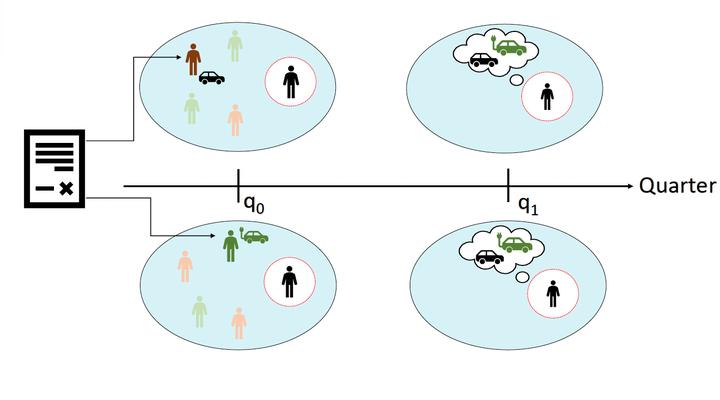
Abstract
I study peer effects in the diffusion of electric cars in Sweden among co-workers, relatives, and neighbors. To identify peer effects, I exploit a shift-share IV design linking expiring leasing contract renewals (i.e., shift) with the propensity to acquire an electric car based on individual traits (i.e., share). One new electric car causes, in the next quarter, .094 new electric car acquisitions in the workplace, .023 in the family, and .22 in the neighborhood. These peer effects displace fossil fuel cars and are associated with the transmission of information. I develop a framework highlighting how incorporating peer effects shifts optimal environmental policies.
Type
Publication
Revise and Resubmit, The Review of Economics and Statistics (Winner of the Distinguished CESifo Affiliate Award in Energy and Climate Economics 2024)